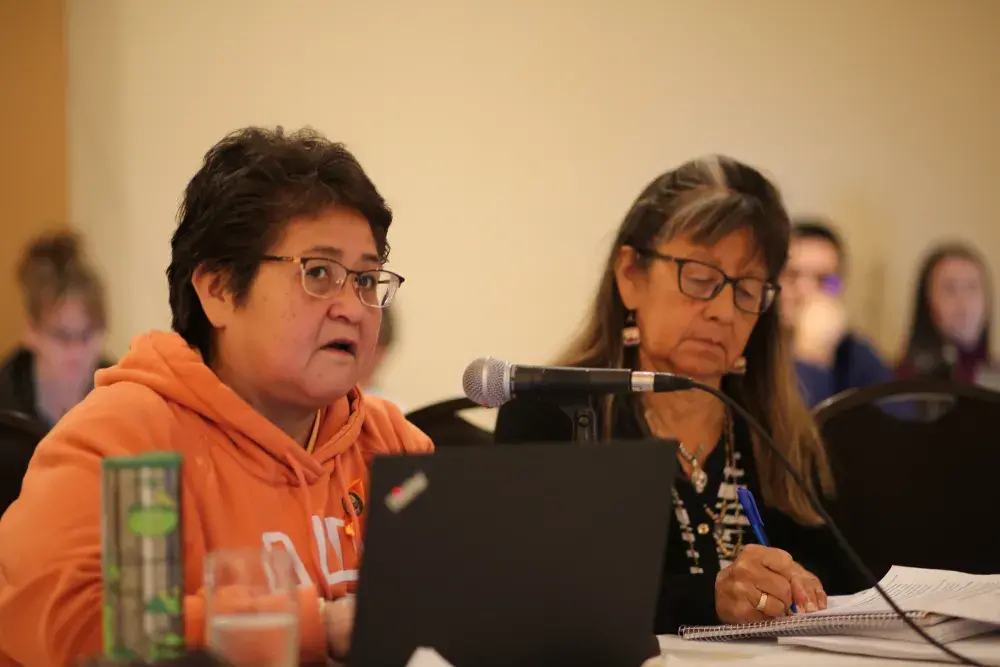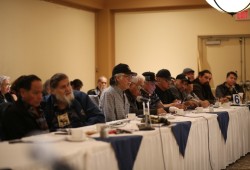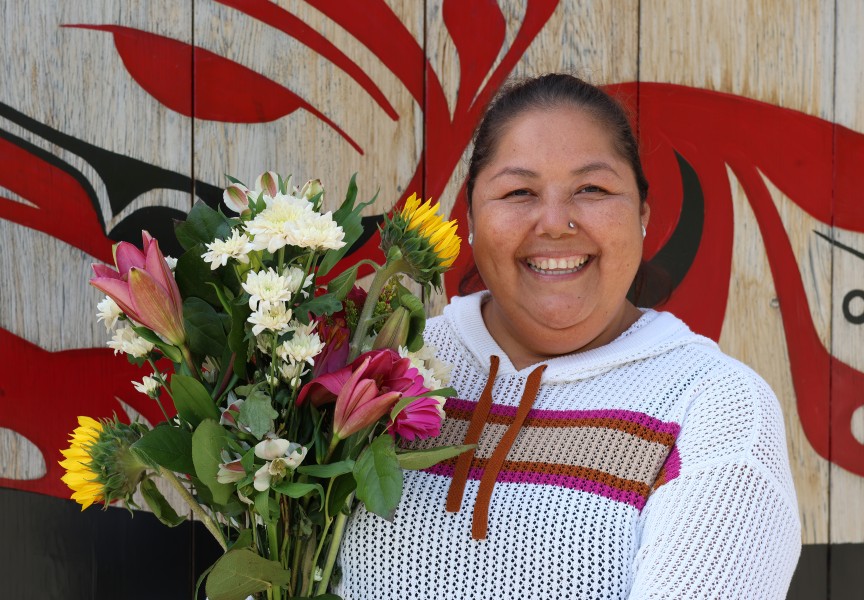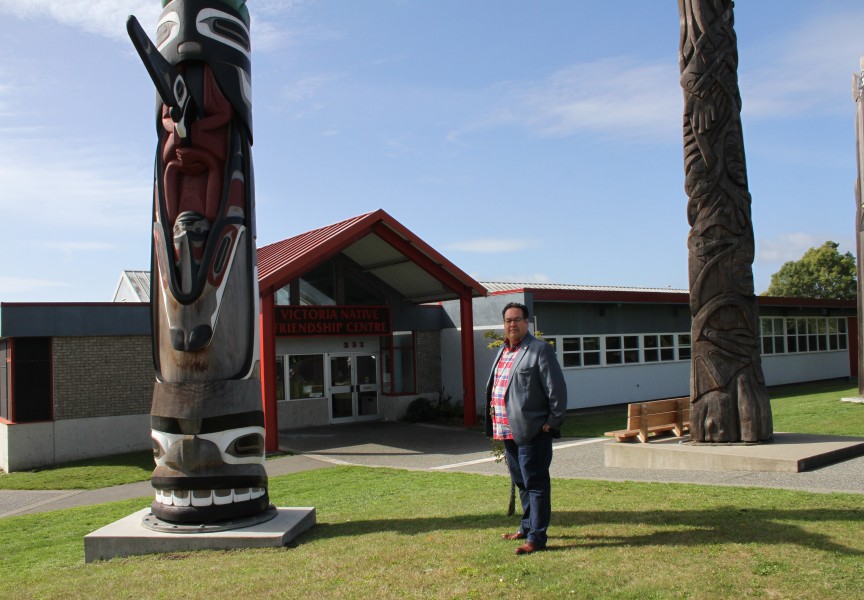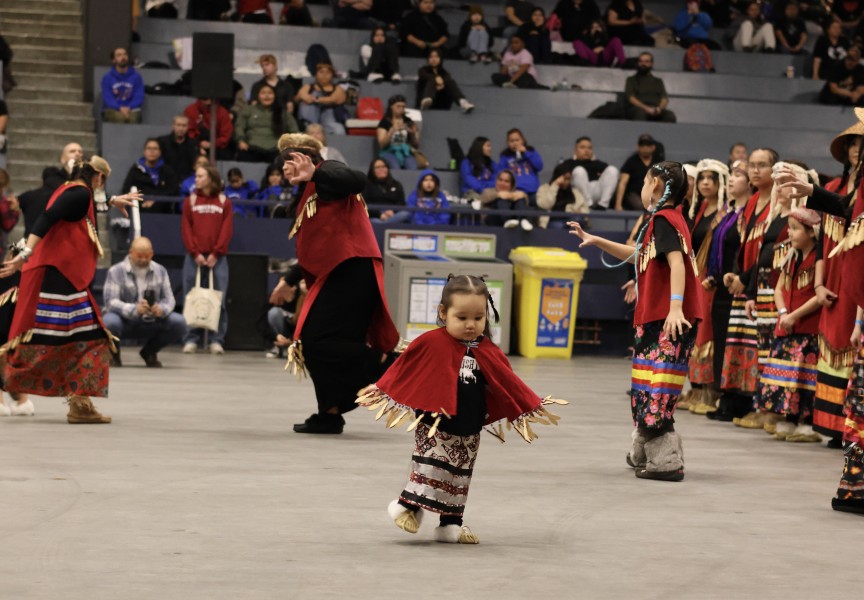A delegation representing the Tla-o-qui-aht language department claimed that B.C.’s Indigenous language programs may be at risk of losing up to 58 per cent of their First Peoples’ Cultural Council funding in 2024 if budget allocations across Canada are adjusted.
Anna Masso, TFN’s language coordinator, outlined the strides her nation is making in saving and revitalizing the Tla-o-qui-aht language. But she is afraid of what will happen if more than half of the language budget is cut in April 2024.
According to Tseshaht Chief Councillor Wawmeesh, Ken Watts, the FPCC funds Indigenous language programs across Canada. British Columbia First Nations gets the lions’ share of the funding because there are more Indigenous languages and dialects in this province. Watts told delegates at the Nuu-chah-nulth Tribal Council Annual General Meeting on Nov. 30 that Indigenous leaders from other Canadian provinces are not pleased with the distribution formula.
“Both B.C. and Canada haven’t made (funding) commitments for 2024 but maybe they will,” Watts reported. “If not, then we will lose 58 per cent of our funding,”
Masso pointed out that it was in 2008 that the NTC’s AGM theme was ‘Retaining our Language’.
“With each generation that leaves us, we lose a wealth of knowledge,” she said.
The Tla-o-qui-aht wonder how they can continue with the progress they’ve made in language preservation and revitalization with more than half their budget gone.
“How do we make up the difference?” the delegation asked.
According to Masso, the First Nation has fewer than 10 fluent speakers left. They ask that the NTC prioritize language revitalization and advocate for funding to support preservation programs.
Ahousaht Chief n̓aasʔałuk, John Rampanen, noted the efforts the nations are making to save their languages, both individually and in partnership with other nations. He said the Tk̓emlúps Nation recently declared a state of emergency to save their language and he suggested the NTC do the same.
Rampanen said it would make sense to seek funding collectively to make sure the efforts to save languages can have security and continuity into the future.
Judith Sayers pointed out that the First People’s Cultural Council, the organization that delivers funding to First Nations groups for language revitalization programs, is a Crown agency.
The discussion at the NTC AGM turned to recollections of past meetings and treaty sessions held in the 1990s and prior, where elders often took to the microphone to share stories and teachings in their language. The NTC has a library of VHS and audio recordings of these meetings that need to be digitized so that they can be shared with Nuu-chah-nulth nations.
The table agreed that the NTC’s library of videotaped meetings should be digitized. In addition, they agreed that an archivist should be hired to catalogue the collection and make them available to the individual Nuu-chah-nulth nations. The videos can then be used to support each nations’ language and culture programs.
A motion that the NTC and member nations declare a state of emergency for the loss of language and culture was passed.
It was further agreed that a working group made up of representatives from each member nation be established to support preservation of language and culture programming. The NTC will look for funding to carry out digitization work of its archives collection and find funds for a researcher/archivist to manage the collection so that it can be shared with member nations.
Cloy-e-iis, NTC President Judith Sayers, says the tribal council will look for money as requested in the motion to access their archives. She recalled how the fluent speakers of the past would talk about many subjects through the years.
“We used to have translators at all our meetings for those who didn’t speak our language so they could follow the teachings, histories and protocols being spoken,” she remembered.
Sayers knows the communities are working to save their languages with dwindling resources.
“So many fluent speakers have left us and there are parts of our language we have already lost,” she noted. “We must continue to work to save our language through teaching teachers, community members and documenting and using our language.”
It is anticipated that the federal government will make significant cuts to language and culture budgets in 2024 and the province has already made cutbacks, according to Sayers.
There is concern that languages could disappear if governments do not reinstate the funding.
“The NTC will be writing letters to both federal and provincial governments to advocate for increased funding in keeping with the calls from the Truth and Reconciliation Commission, reconciliation itself, and implementing UNDRIP and the federal and provincial action plans,” said Sayers. “Governments cannot walk away from their legislated commitments.”

